|
Khazen Blog
Khazen Blog
Written by
Saturday, 28 May 2011 18:31
In a way, Microsoft (Nasdaq: MSFT ) and IBM (NYSE: IBM ) couldn't be more different. Microsoft has lost a third of its value over the past decade; IBM has gained 50%. IBM recently surpassed Microsoft in market capitalization for the first time since 1996. In other ways, they're a lot alike. Microsoft has grown earnings per share by 10.9% annually for the past decade. IBM's growth over the same period? 10.2%. Analyst estimates for Microsoft's five-year projected growth rate is 10.3% -- IBM's, 11.2%. These are different companies with different products in different industries, yet both past and projected growth are about equal. Shareholder returns, however, couldn't be more night and day. Why? I think you can break this conundrum down into two parts. Both are huge lessons every investor should be aware of. 1) The most important lesson in investing A parade of analysts and investors chide Microsoft for its abysmal shareholder returns over the past decade. In reality, Microsoft the company has done terrific. How many large companies grew earnings at 10% annually during one the worst economic decades on record? (11, if you're wondering). Nearly all of the misery Microsoft investors experienced over the past 10 years can be explained by starting valuation. Shares traded at 60 times earnings at the start of the last decade. Shareholders' fate was already sealed at that point. There was no realistic outcome that could have left them with anything other than tears today. IBM was a different story. While it, too, was caught up in the dot-com bubble, it never got outrageously out of whack. Ten years ago, IBM shares traded at roughly 25 times earnings. That created a high hurdle but not an insurmountable one. The compression in IBM's earnings multiple over the past 10 years hasn't been drastic, letting shareholders enjoy at least some of the company's earnings growth. Microsoft's earnings multiple compression has been astronomical, causing shares to crumble even while the company grew briskly. The same story of flatlining returns amid strong earnings growth has happened to Wal-Mart (NYSE: WMT ) , Google (Nasdaq: GOOG ) , and Johnson & Johnson (NYSE: JNJ ) . Each case can be explained simply: Starting valuation determines future returns.
Written by News
Monday, 23 May 2011 00:51
Journal Sentinel
Technology companies IBM Corp. and SAP AG are teaming up with the University of Wisconsin-Milwaukee Lubar School of Business to establish a data center that focuses on bringing more technologically trained business graduates into the workforce. The center is being unveiled on Monday. IBM is providing computer hardware, software and training for the center, officially known as "The Technology Innovation Datacenter - Powered by IBM," university officials said. The data center features the high-performance IBM Power 750, the server used for IBM's Watson, the recent "Jeopardy" winner. The data center will support the SAP University Competence Center, which is located in the Lubar School. The UCC is a hub for universities across a large portion of North America that offer a technology-focused business curriculum. "The UCC provides hosting services and help-desk support for faculty and the 40,000-plus students in the more than 100 universities in North America where SAP software is used to reinforce and supplement classroom content," UWM said. "Students from all over North America can access the center via the Internet to use in their course work," said Dave Haseman, director of the Lubar School's Center for Technology Innovation and IBM Professor of Information Technology Management. The Lubar School's UCC is one of only five such competence centers in the world.
A business, tech marriageDemand for workers who have a combination of technology and business skills is growing. "It's huge," said Aaron Ritchie, managing director at Experis, the specialty recruitment arm of ManpowerGroup that focuses on information technology, engineering and finance/accounting.
Written by News
Thursday, 19 May 2011 23:56
Written by News
Monday, 28 March 2011 02:55
(The Daily Star :: Lebanon News :: http://www.dailystar.com.lb) By Emma Gatten BEIRUT: In most countries, people who do Mireille Raad’s job have no trouble working from home. As a freelance software developer, the technology exists for her to send clients her work via email, or access their computers remotely in order to resolve any issues. In Lebanon, Raad spends two hours most days traveling to clients from her home in Batroun. The problem is that while Raad has access to the latest technology, Lebanon’s Internet connections are stuck in the early ‘90s. Earlier this month, the country’s Internet speeds were declared the slowest in the world by the website speedtest.net. “Are you going to send [big files] by Liban Post?” Raad asks. “And wait until the next day for the client to get it and then call him to tell him how to use it?” Raad estimates that her productivity is cut by at least 30 percent a month, factoring in poor speeds and extra travel. She also faces high prices, paying $70 a month for her connection. In a 2008 survey by the Telecoms Regulatory Authority (TRA), the independent body funded by the state to regulate the industry, Lebanon came out with the most expensive Internet in the region for 1mbps of ADSL, while 46 percent of people surveyed said they thought their monthly rate was too high. There are manifold reasons for the high prices and slow speeds. The country has, as Mahmoud Haidar, an adviser to caretaker Telecommunications Minister Charbel Nahhas puts it, “much more than we need” in terms of bandwidth coming in to the country, thanks to cables from Cyprus, and another from India to Europe, across the Middle East (IMEWE). And in a news conference in September last year, Nahhas said new projects to be implemented that year would increase capacity by 168 times. Yet nothing has changed for users.
Written by
Saturday, 5 March 2011 23:47
t
khazen.org, "Our joy has no limit!." Glory to our New Patriarch!!! The Glory of Lebanon is given to you - All of the khazen will serve as your servants Patriarch Mar Bechara Al Raai. The khazen family pray for the new Patriarch to continue, in strengthening and lead he Maronite Catholic Nation all around the World. It is a day of extreme hope, unity and happiness for Khazen.org! Rai, 71, who was the Archbishop of Jbeil, is the 77th patriarch of the Maronite Church, a position. Rai was elected after almost a week of deliberations by 38 bishops at the Maronite Patriarchate in Bkirki. His election was celebrated by a televised mass while Maronite churches across the country rang bells at midday in celebration. “The elections took place with love and peace,” Rai said in a televised speech. Monsignor Youssef Tawk, head of the Council of Maronite bishops, announced the news from the church's headquarters in Bkerke, northeast of Beirut, after days of meetings behind closed doors during which the Bishops voted on who would succeed the long-serving Sfeir. Well-wishers, including politicians and clergymen, immediately began to pour in to Bkerke upon hearing the news, some shedding tears of joy. Cardinal Patriarch Boutros Nasrallah is very happy of the election of the Patriarch and has said of Raii "He is one of the pillars of the church (in Lebanon) and is open to all the communities, he added. "He is a very qualified person from a spiritual standpoint, he listens to everyone and greets everyone the same, whatever their background."
Worshippers attend a ceremony for the newly elected Christian Maronite Patriarch Beshara al-Rai at the the patriarchate church in Bkerki, north of Beirut, March 25, 2011. Lebanon's Maronite Church Christian community held an official ceremony to assume the new Maronite Patriarch Beshara Al-Rai in his new post on Friday held at the Maronite Patriarchate in Bkerki . REUTERS/ Dalati Nohra/Handout
Lebanon's Christian Maronite Cardinal Nasrallah Sfeir (L) blesses the newly elected Christian Maronite Patriarch Beshara Al-Rai during a ceremony at the patriarchate church in Bkerki, north of Beirut, March 25, 2011. Lebanon's Maronite Church Christian community held an official ceremony to assume the new Maronite Patriarch Beshara Al-Rai in his new post on Friday. REUTERS/ Dalati Nohra/Handout
"The El Khazen family represented by two members (Ghosta Branch and Ajaltoun Branch) will have the honor to guard Bkerke during the next election of the Maronite Patriarch. This is a special power and preeminence that Bkerke has over the El Khazen family, as a consequence of its sovereignty and safety of election. The main duty is to ensure that there will be no interference or influence from any outsiders. Cheikh Farid Haikal El Khazen will represent the Ghosta branch and Cheikh Amine Keserouan El Khazen will represent the Ajaltoun Branch. His beatitude Patriach Sfeir has accomplished tremendously for Lebanese, ensured freedom, Maronite safety and growth throughout the last three decades. The El khazen as a whole are very thankful about the great and unique accomplishments of His Beatitude Patriarch Sfeir and they will remain always servants of the Patrarch at his service." Daily Star:
BEIRUT: Newly elected Maronite Patriarch Beshara Rai was born in the Metn town of Hemlaya on Feb. 25, 1940. Before his election Tuesday, Rai was head of the Maronite Diocese of the coastal town of Jbeil, northern Beirut, from 1990. Rai received his intermediate and high school education at the College Notre-Dame de Jamhour. In 1962, he received a bachelor’s degree in philosophy and theology and in 1975 he received a PhD in canon and civil law. Rai also studied three years of law at the Pontifical Lateran University in Rome. In 1995, Rai was appointed by Pope John Paul II as a member in the Pontifical Council for the Pastoral Care of Migrants and Itinerants and he has served on the council since then. In 2005, he was appointed by the Council of the Catholic Patriarchs of the Orient as a coordinator for the Episcopal Commission for the Family in the Middle East in 2005. More recently in 2010, Rai was appointed by Pope Benedict XVI as a member of the Pontifical Council for Social Communications. The new patriarch has also worked in academia. He has been a lecturer in pontifical theology and the sacrament of matrimony at Universite Saint-Esprit De Kaslik since 2001. He has also been a lecturer in legal rights at Sagesse University in Beirut since 2001. In 1994, Rai received the Order of Merit, Commander Rank, by the Italian president of the Italian Republic and in 2007 he received the National Order of the Cedar. – The Daily Star
The first electoral rounds will begin Friday morning or afternoon after a secretary general – to preside over electoral rounds – and a committee to sort out votes is elected Thursday by the Synod of Bishops following hours of prayers. Former Kesrouan MP Farid Haykal El Khazen and former ambassador Amin El Khazen locked the patriarchate’s doors to visitors. By tradition, members of the Khazen family stand guard in Bkirki until a patriarch is elected. The tradition began in 1703 when a member of the Khazen family used to guard the monastery, which was then under construction, before it became the seat of the patriarchate in 1823. Thirty-seven Maronite bishops, among them several presiding over dioceses across the world, arrived in Bkirki by Wednesday afternoon after flying to Lebanon.
Catholic news agency: "Pope Benedict XVI has formally accepted the resignation of Maronite Catholic Patriarch Nasrallah Pierre Sfeir, who is retiring at the age of 91.Cardinal Sfeir has led the Maronite Church since 1986. A new Patriarch of Antioch will be elected at a meeting of the Maronite Synod of Bishops, expected to be held at Bkirke, the headquarters of the patriarchate, in March.
At his request, Patriarch Rai will officially be installed on the feast of the Annunciation, March 25. Catholic patriarchs do not have their elections confirmed by the pope, but the new patriarch will request and receive spiritual communion from Pope Benedict XVI. The 77th patriarch of the Maronite Catholic Church said "Communion and Charity" would be his motto.
The Maronite Church exerts enormous public influence in Lebanon, where it is by far the largest Christian body. In his letter accepting the Patriarch’s resignation, Pope Benedict alluded to Cardinal Sfeir’s leadership during years of turmoil in Lebanon: You began your noble ministry of patriarch of the Maronites amidst the torment of the war which bloodied the face of Lebanon for so many years. With the ardent desire for peace in your country, you led the Church and travelled the world to console those obliged to emigrate. Finally, peace returned, ever fragile but still extant. The outgoing Patriarch will convene the Maronite Synod to elect his successor—according to reports in Lebanon, in the middle of March. He denied that he had his own favored candidates, stressing that the younger Maronite bishops would make the decision.
Lebanon's President Suleiman chats with Lebanon's outgoing Christian Maronite Patriarch Cardinal Mar Nasrallah Boutros Sfeir and newly elected
Reuters via Yahoo! News - Mar
 Lebanon's newly elected Christian Maronite Patriarch Rai greets his audience at the patriarchate in Bkerki
Patriarch Election History by Richard Van Leewen - Notables and Clergy in Mount Lebanon "The political prestige of the El Khazen Sheiks, and even their position as Consuls of France, was partly founded on the endorsement of the Maronite prelates and the European missionaries. In the course of the 17th century, when the Khazens asserted their control over Kiserwan, the symbiosis between secular and clerical authority took the form of an all-embracing secular patronage over the church and the dominance of lay interests. It should be noted that this lay interference was not inconsistent with tradition, as no clear definition of the role of laymen in the church existed. The privileges acquired by the Khazens were not seen as an infringement of traditional practice or of clerical independence as it was justified by their secular authority and, moreover, provided the clergy with obvious advantages. The influence of the El Khazen Sheiks in clerical matters concentrated on two aspects, which were, as far as the clergy were concerned, closely interrelated: the nomination of prelates and the founding and administration of clerical and monastic possessions. Traditionally, the main Maronite notables were consulted on the occasion of the election of the patriarch. In practice, from the 17th century onwards, this custom implied that the Khazen Sheiks had to approve the chosen candidate, before he could receive the pallium from Rome. It has been recorded, for instance, that the delegates who had travelled to Rome in 1633 to obtain the confirmation of the election of Jirjis IJmayra had to return to Mount Lebanon empty-handed, as they were unable to produce the endorsement letters from the Khazens which were required by the Vatican. In 1670 discord broke out between the Khazen Sheiks and the elected patriarchal candidate al-Duwayhi, since, according to some sources, Sheik Abu Nawfal had not previously been consulted. In 1710, finally, the Khazen Sheiks used their influence to have the mutrans depose Patriarch Ya^ub Awwad and appoint a Khazen protege, Yusuf Mubarak. These examples, which supposedly were recorded because they represented irregularities in the prevailing pattern, show that in the course of the 17th century the patriarchate came under the control of the Khazen Sheiks to a large extent.13 The authority of the Khazen Sheiks over the patriarchate was enhanced by their interference in the ordination of the mutrans, who were officially responsible for the election of the patriarch and provided the candidates. Moreover, the mutrans were, again officially, directly responsible for the administration of the dioceses covering the Khazen domains and for the collection of the "ushur. Mutrans who were ordained as a result of the intercession of the Khazen Sheiks in the 17th century were, as far as we know, Ishaq al-Shadraw! (Tripoli; 1629), Sarkis al-Jamri (Damascus; 1658) Yusuf Mubarak (Baalbek; 1683) and Butrus Makhliif (Cyprus; 1674). Eventually, the three main branches of the Khazin family acquired the privilege of selecting the mutrans of the dioceses of Aleppo (awldd Abi Nasif), Baalbek (awldd Abi Qansawh) and Damascus (awldd AbT Nawfal). This privilege was acknowledged by Patriarch Ya'qub 'Awwad. It is, therefore, evident that the Khazen Sheiks also interfered in dioceses which officially had no connection with their administrative territory, an indication that they saw their role in church matters as an extension of their political power within the community as a whole.14
Written by
Saturday, 12 June 2010 19:19
We demand the Lebanese government: Please join our group in facebook to support these requests! Click Here to join the group in facebook
Written by
Sunday, 30 August 2009 21:01
Written By Malek El Khazen - Currently, while writing this article, I am watching the funeral of Senator Ted Kennedy. An amazing, fascinating Leader and above all being a leader is really secondary to what he was a true and one of the most powerful Legislators worldwide. In his last 3 decades after his fail presidency bill, he did not seek leadership or popularity anymore; he was seeking a better world, an economically just society, and causes beyond presidency, beyond personal positions. To summarize in one sentence he simply became “the voice for the voiceless”. Serving just as a “senator” may not be as prestigious as being a President or Vice President or receive the respect you receive in these executive positions. But as “Teddy” has demonstrated his life fulfillment as a legislator is much greater than many presidents combine could not achieve. He is a fighter for social issues and helped achieve a better nation where economic justice will be available to its citizen. It simply does not matter if you are Conservative or Liberal he was just an American icon, a legend above politics that affected the life of all of a nation. He has introduced or sponsored the most important laws in the modern history of the United States; from civil rights, immigration, minimum wages, education, armed services, health-care to voting rights you will find his fingerprint on each of these laws. His strength was communication reaching to his opponents and most importantly getting compromise with senators with disparate views. He got laws passed, he got a nation moving, he understood the POWER of a legislator and the POWER that the legislator can achieve and this is why he was always referred by his opponents as the “Lion of the Senate”. He was simply a true legislator; a great “public servant who through his dedication did make a difference in creating a better society in America.
Written by
Sunday, 16 August 2009 18:15
Creating an improved health care system is everyone’s objective who does not seek improvement? Or cut cost? Or covering all of the uninsured? But the big question is do we need universal healthcare? Do we really need it? Or do we need improvement of our current health care system and identifying clearly the problems by tackling them one by one. Major concerns about a universal healthcare still unclear:
1- Cost:
President Obama in one of his town hall meeting has responded by outlining how he planned to fund the program, by eliminating medical-practice waste and insurance expenses, to cover two-thirds, and one-third by taxing those who make over $250,000 a year. Noting that he is in the higher-income bracket, Obama said, "There's nothing wrong with me paying a little more to help people with less."
But it is important to note that “Massachusetts’s universal health plan, long discussed as a possible model for the nation, is getting a $115 million haircut. Faced with lower revenues and a growing number of citizens who lost their jobs and their health insurance… Because of all of these new unexpected variables added the state didn’t have enough money to pay for insurance subsidies for needy residents under the current plan. Higher health care costs fueled a combined $9 billion gap in the state's 2009 and 2010 budgets that had to be closed last month, leaving less for education, public safety, the environment and other services.” (USA-Today, Richard Wolf)
Having clarified this if Massachusetts a state of 6.5 millions residents needed to cover a total of 680 000 uninsured were able to offer health insurance to 439,000 leaving 2.6% of the total population of the state or 115K without insurance. “As of June 30, 2008, the estimated number of uninsured had dropped to 2.6%. 115000 still uninsured” (Boston.com). In reality, Massachusetts needed to cover 680K and they were able to cover 439K which is only 65%of the uninsured. Additionally this has led a deficit in the budget by billions. My next question would be how would the government be able to cover currently 46 millions uninsured? Let us imagine they match Massachusetts performance because as we are all aware it is simply unlikely especially during the first years to cover all uninsured. It is fair to state by implementing the new universal system they will be leaving out of the 46 millions still 16 millions uninsured. Then will this be a failure or success? My biggest concern will still be the deficit that we are already facing which on top of this adding more deficit because of high unemployment, foreclosure rates, house values decreasing, the easy answer seems to be taxing citizens with a salary more than 250K but the money seems simply not to be there or not enough, to cover all of these new costs where you really will NOT be able to cover all of the uninsured especially in the first decade.
We also fail to notice that the cost of Insurance will increase with time, a fast growing population, unemployment rising, what is decreasing is the number of jobs, Revenue of companies decreasing, more debts, government bailing out large companies, stimulus packages, fighting 2 wars, global warning. We cannot simply continue printing money or we will be hit by inflation. These are the expected variables, usually you still have unexpected variables after taking into account all of these variables.
|
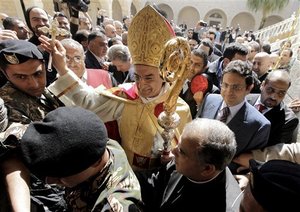
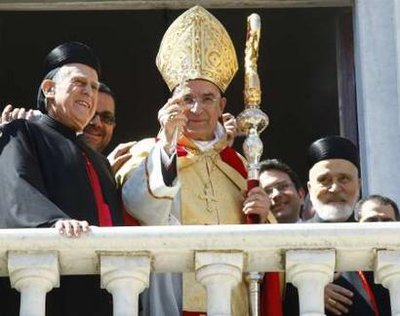

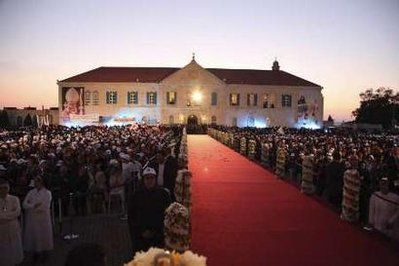
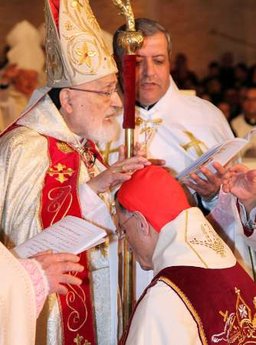
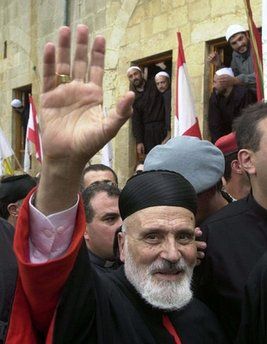
 khazen.org
khazen.org
.jpg)